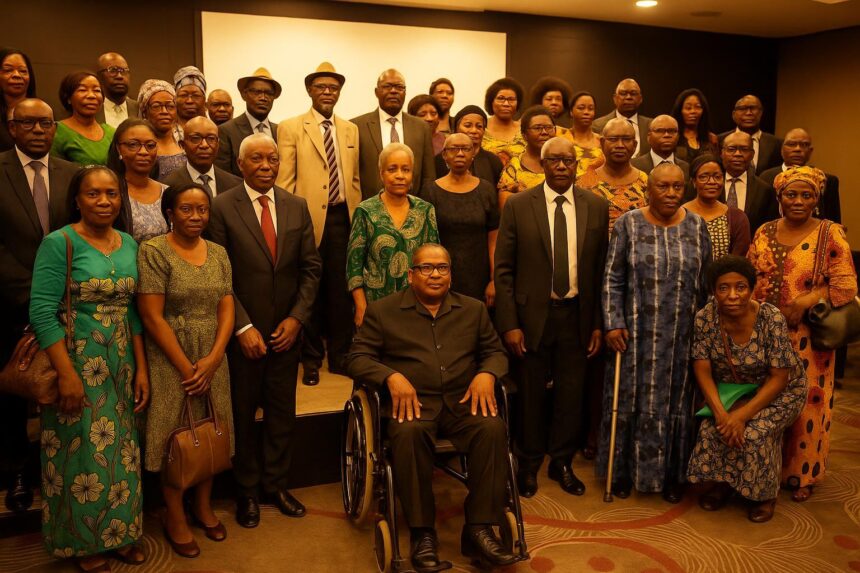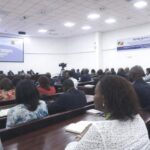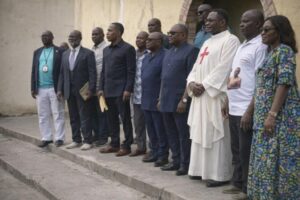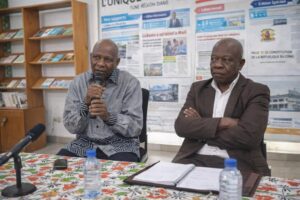Opening session signals new era
The Economic, Social and Environmental Council, better known by its French acronym CESE, opened its maiden ordinary session in Brazzaville on 31 October with a single objective: draw a clear path for the four decisive years ahead. The gathering immediately signalled a fresh start.
Under the steady chair of former minister Emilienne Raoul, the new members examined the draft strategic plan covering the 2025-2029 mandate. Their first collective act was to scrutinise every line, looking for ways to turn the consultative chamber into a modern, result-oriented partner for government.
Reading the Roadmap 2025-2029
Councillor Ugain Mikala Kaya summed up the atmosphere succinctly, noting that the institution appeared ready to “truly commit to a development policy”. His comment captured a shared optimism that the new roadmap can bridge institutional duties with the day-to-day concerns of Congolese households.
The draft plan, presented by secretary-general Wilfrid Magloire Obili, embraces medium-term planning rather than year-to-year improvisation. Obili argued that a flexible framework will let the Council react to shifting social or economic contexts while pursuing continuous improvement and measurable impact.
Members agreed that successful implementation will demand discipline in monitoring, transparent reporting and swift adaptation. Several pointed out that citizens and civil-society groups now expect timely feedback and concrete recommendations, not simply decorative opinions produced long after issues have evolved.
Four pillars, one ambition
The roadmap revolves around four concentric pillars. First comes enhanced internal performance, with new digital tools slated to speed deliberations and cut paperwork. Second, a stronger dialogue with civil society seeks to give a megaphone to grassroots realities within formal institutional corridors.
Third, the Council aims to tighten cooperation with bodies empowered to request its opinions, notably the Government, National Assembly and Senate. By aligning calendars and expectations, the chamber hopes its analyses can arrive at the very moment lawmakers craft bills or budget drafts.
The final pillar focuses on transformation and change management inside the institution itself. Training programmes, clearer job descriptions and merit-based promotions are envisaged to build morale and professionalism, ensuring the CESE’s recommendations carry both technical weight and moral authority.
Inside voices, shared purpose
Discussions were described as frank yet collegial. Senior councillors compared past hurdles with present ambitions, while newcomers brought anecdotes from workplaces, markets and classrooms. The result, several attendees said, was a colourful mosaic of viewpoints united by a wish to serve the Republic better.
“The contributions showed we all share the same preoccupation: belonging to an institution ready to play its role beside other republican bodies,” Emilienne Raoul concluded in a voice that mixed satisfaction with caution. Her closing remarks drew approving nods across the semicircular chamber.
Councillors left the hall holding printed copies of the draft plan, with margins already filled by handwritten suggestions. Many promised to consult their respective constituencies before the next session, signalling an intent to anchor the document in lived experience rather than in-board jargon.
Next steps on the institutional calendar
The text will now circulate through specialised commissions for fine-tuning, then return to plenary for adoption, likely early next year. Once validated, a dashboard of indicators will track progress each quarter, offering the public a window into how advice becomes action.
Observers note that the CESE’s influence depends less on legal force and more on the timeliness and clarity of its opinions. By embracing a performance mindset, the chamber positions itself as an agile bridge between citizens, experts and decision makers.
Economists in Brazzaville cautiously welcome the approach, arguing that steady consultation helps reduce policy misfires that can strain public finances. Environmental groups, for their part, hope the Council’s expanded mandate will keep climate resilience and biodiversity on the national agenda.
Backed by partnerships with peer institutions abroad, the CESE also eyes comparative studies to import good practices suited to Congo-Brazzaville’s context. Successful examples, sources say, could shorten learning curves and give added credibility to local recommendations.
For now, the mood inside the advisory house is one of guarded enthusiasm. The next months will reveal whether the renewed energy evident on 31 October translates into concrete reports that resonate in ministerial offices, parliamentary committees and, ultimately, in the daily lives of citizens.
Legal analysts underline that the Council’s opinions, though non-binding, often shape executive decrees or parliamentary amendments when presented with persuasive evidence. Building a robust statistical unit within the CESE, they argue, would enhance its authority by grounding each recommendation in up-to-date national data.
Citizens interviewed outside the venue expressed cautious hope, stressing that the cost of living, job creation and reliable public services must dominate forthcoming deliberations. If the Council keeps those bread-and-butter issues at the centre of its agenda, many believe public trust will naturally follow.
Until then, all eyes remain on the commissions that will refine the plan line by line, converting lofty headlines into timelines, budgets and benchmarks the nation can monitor.






















